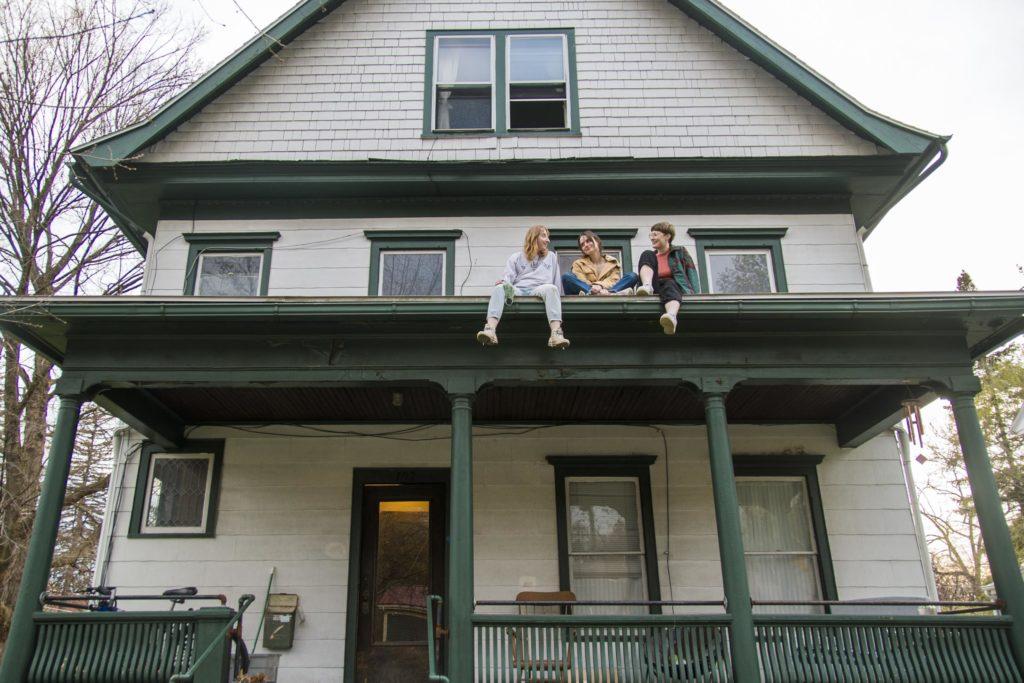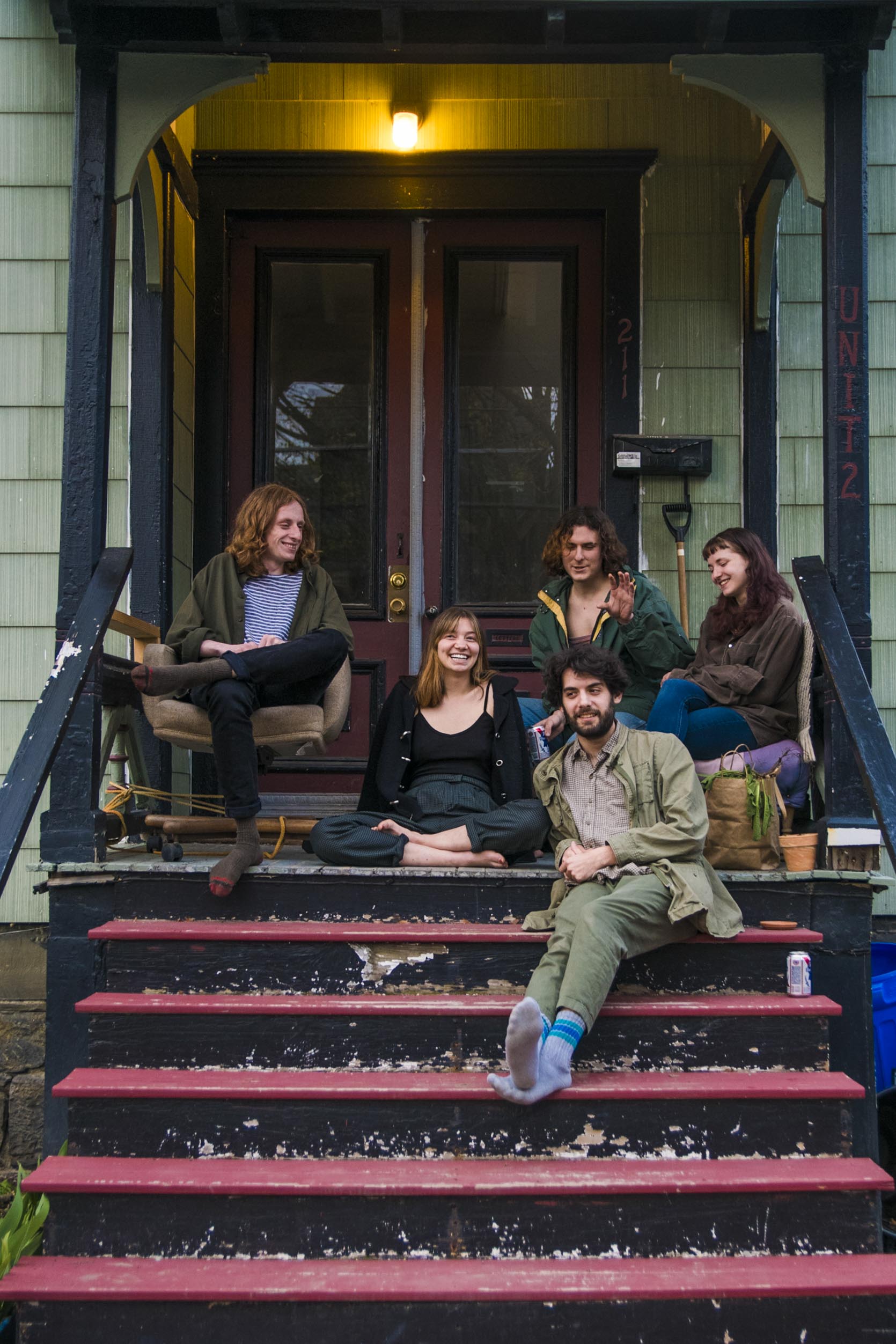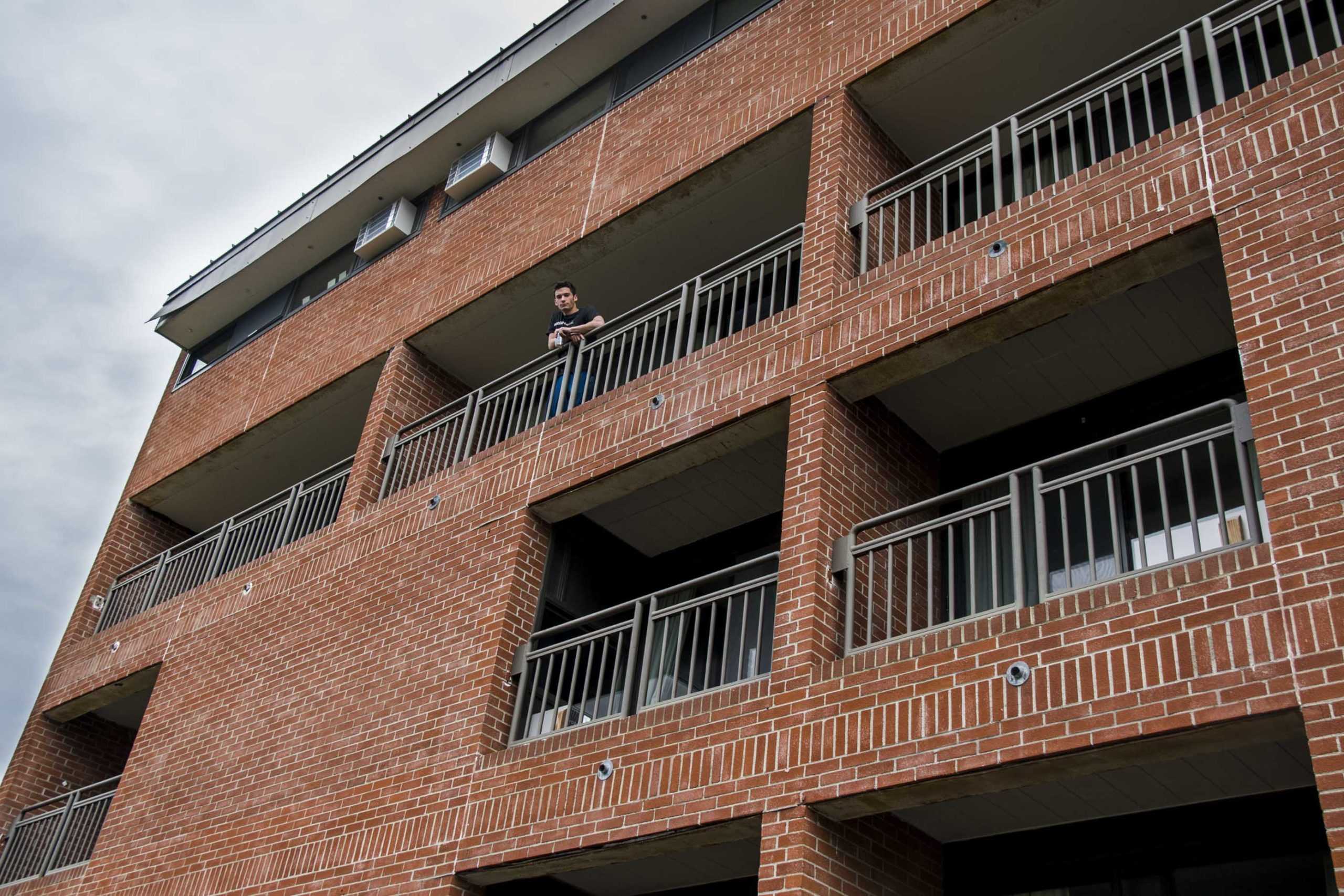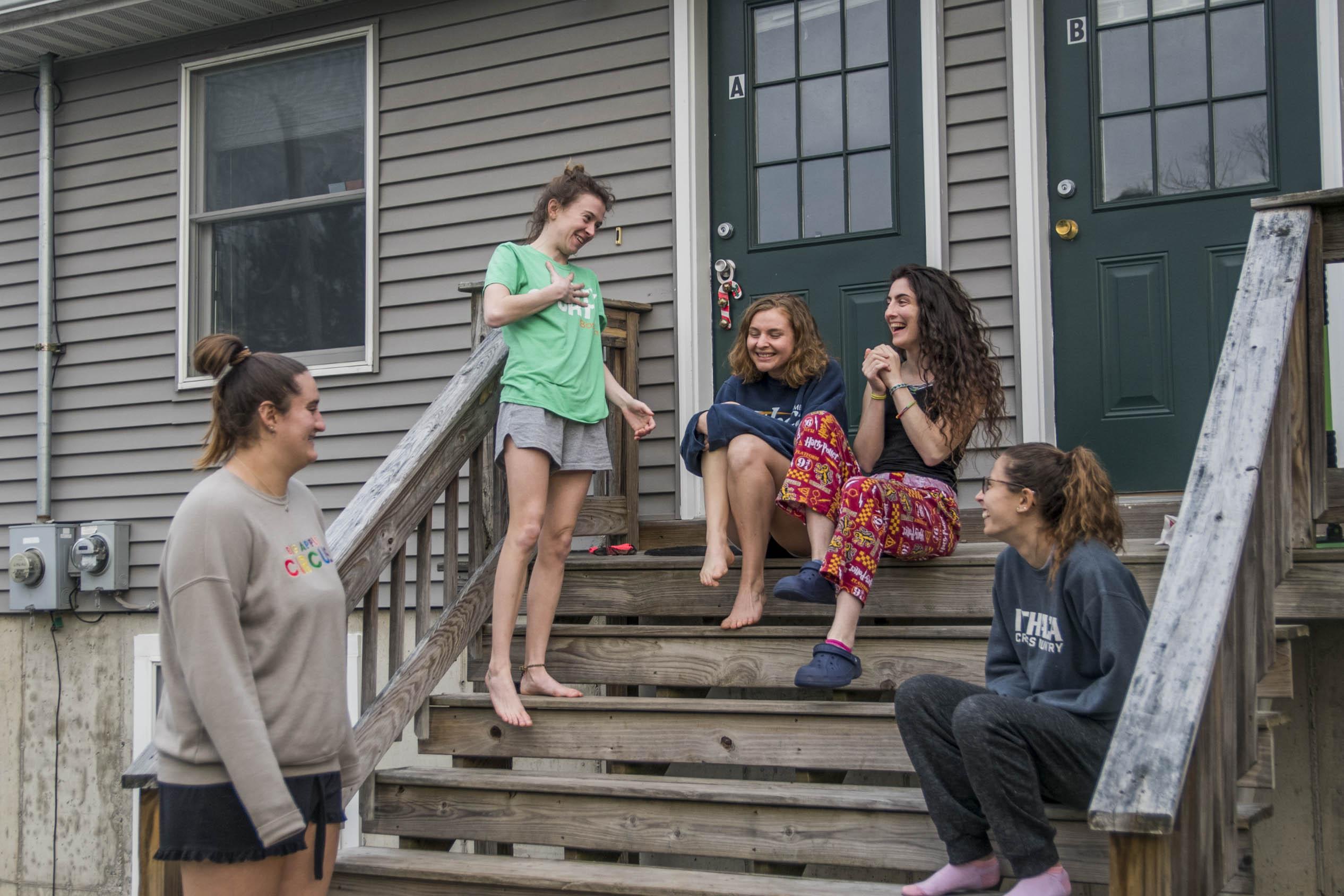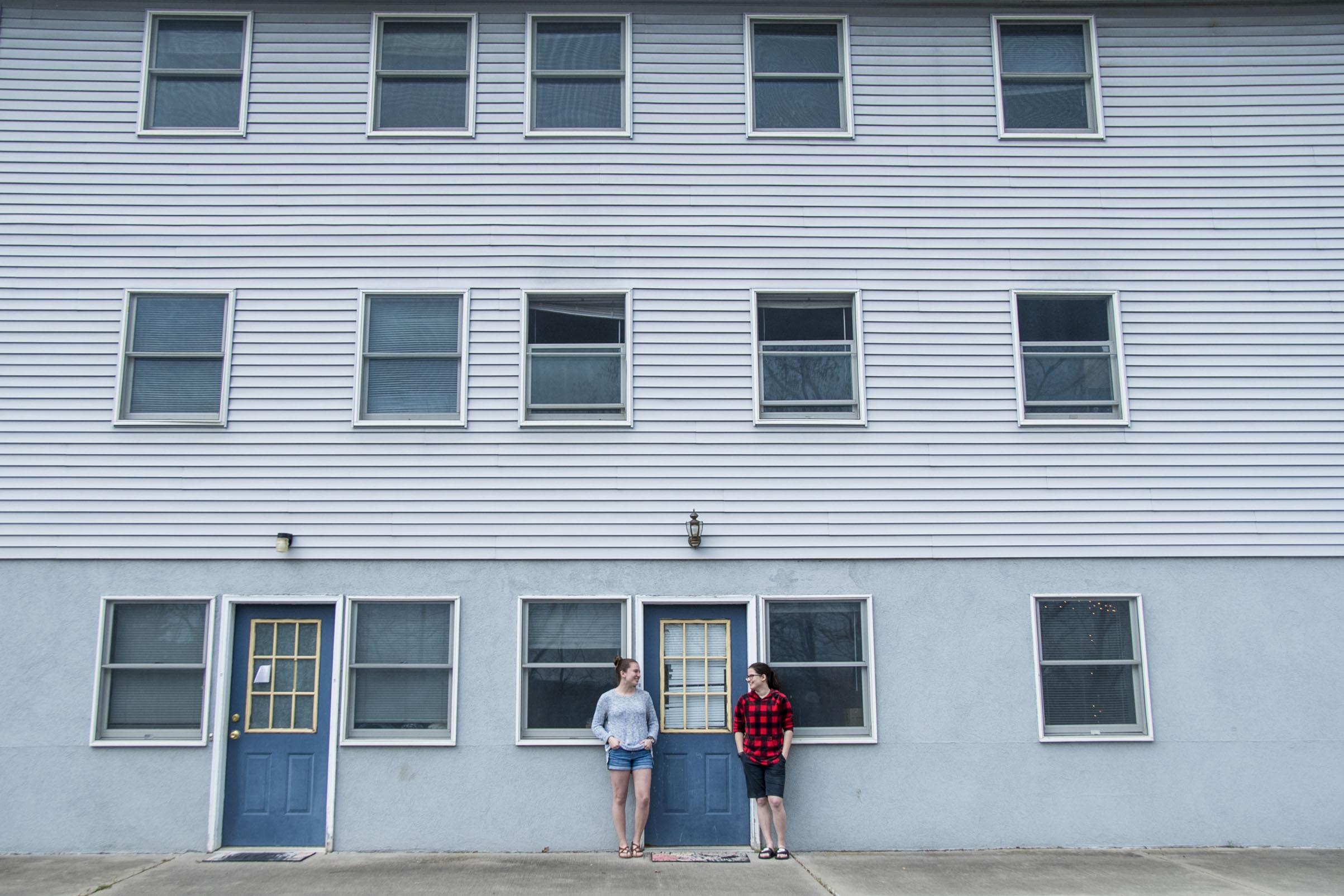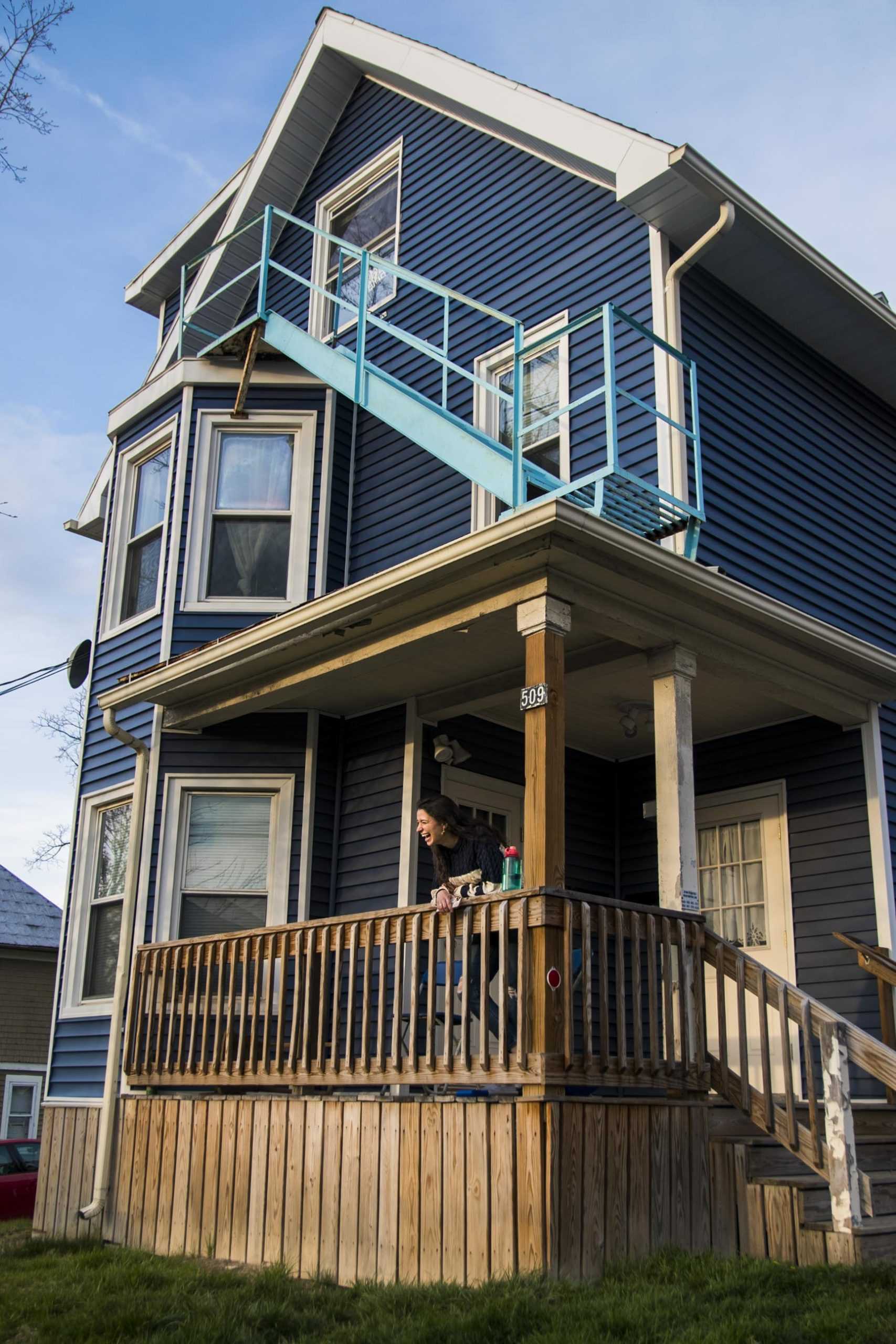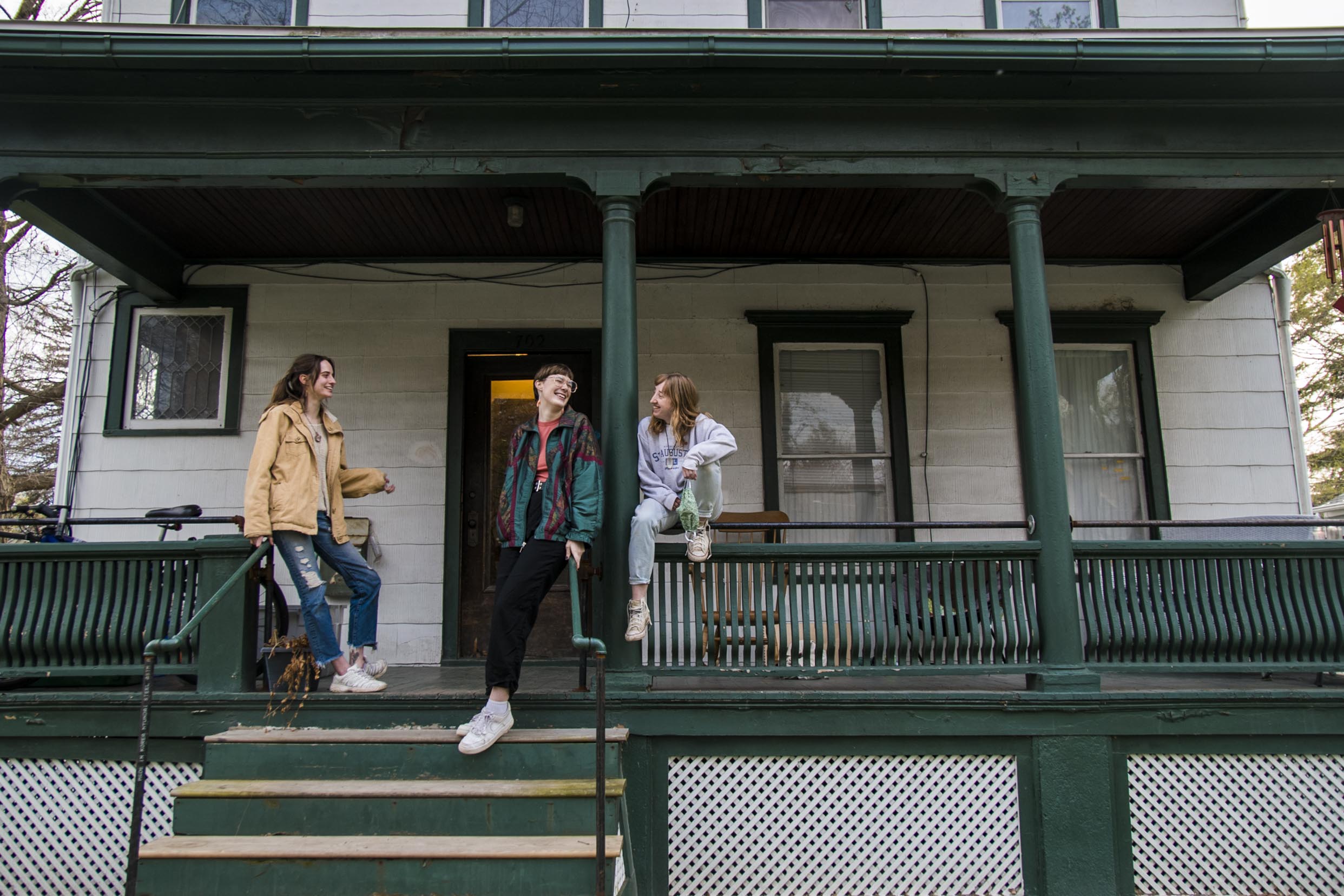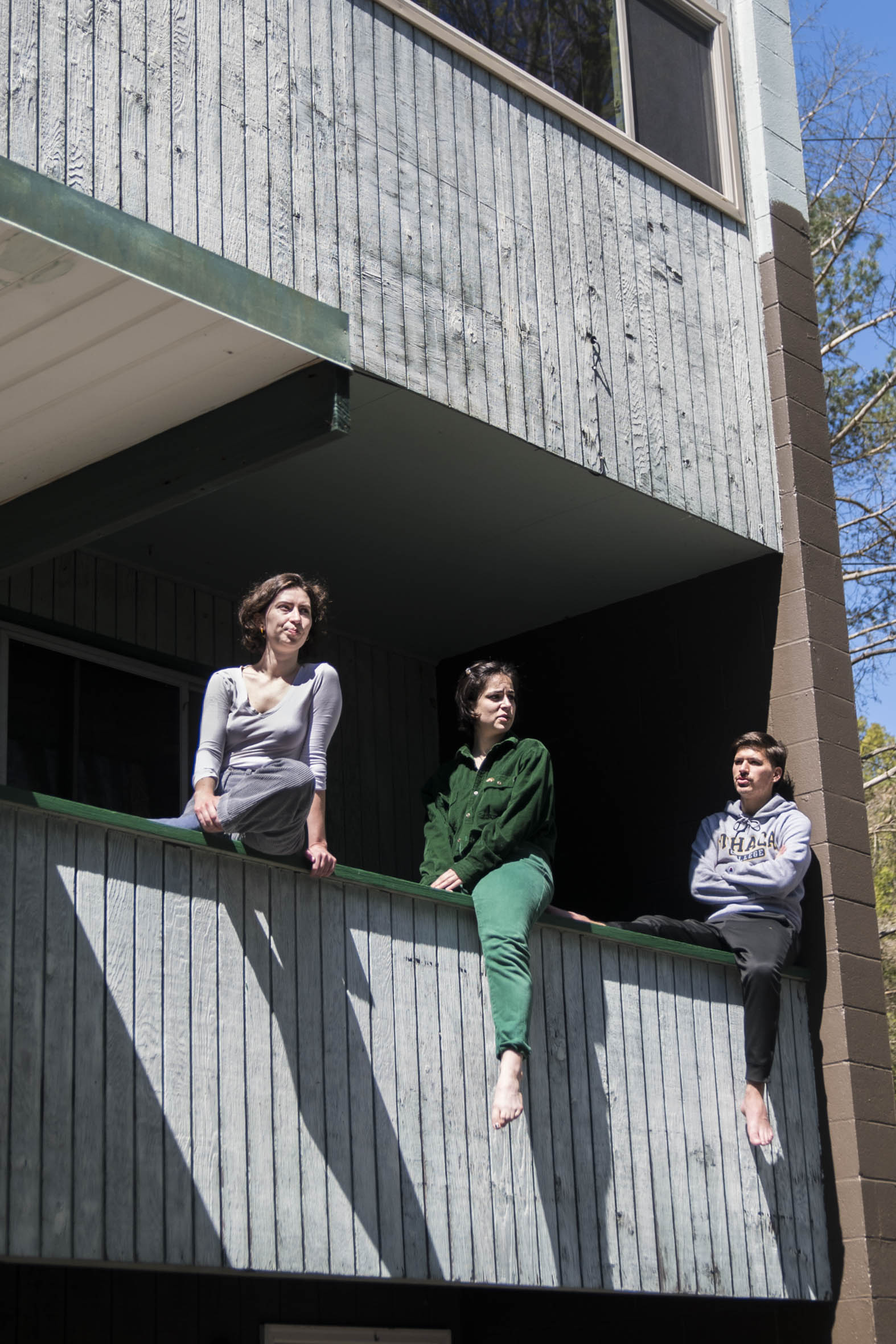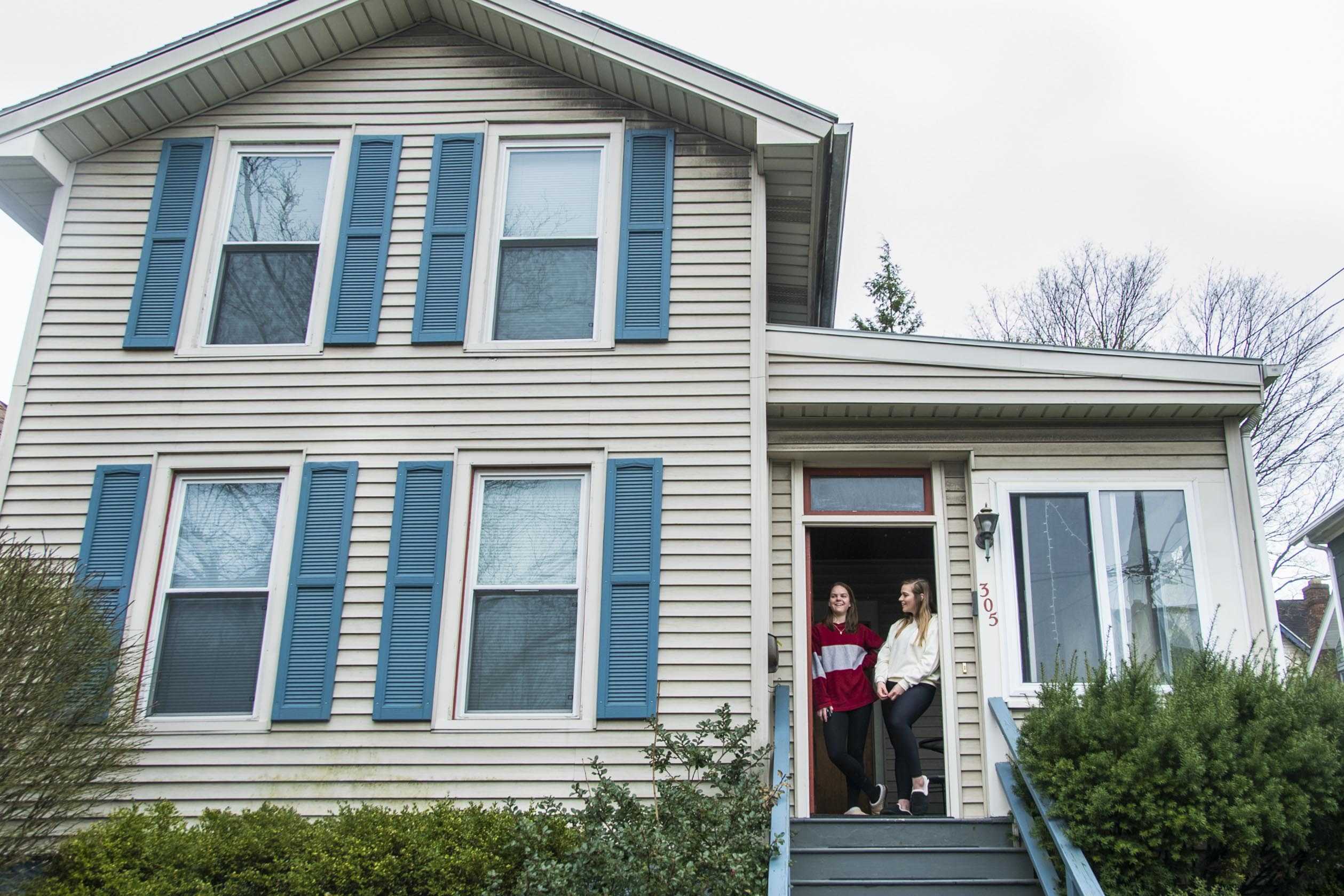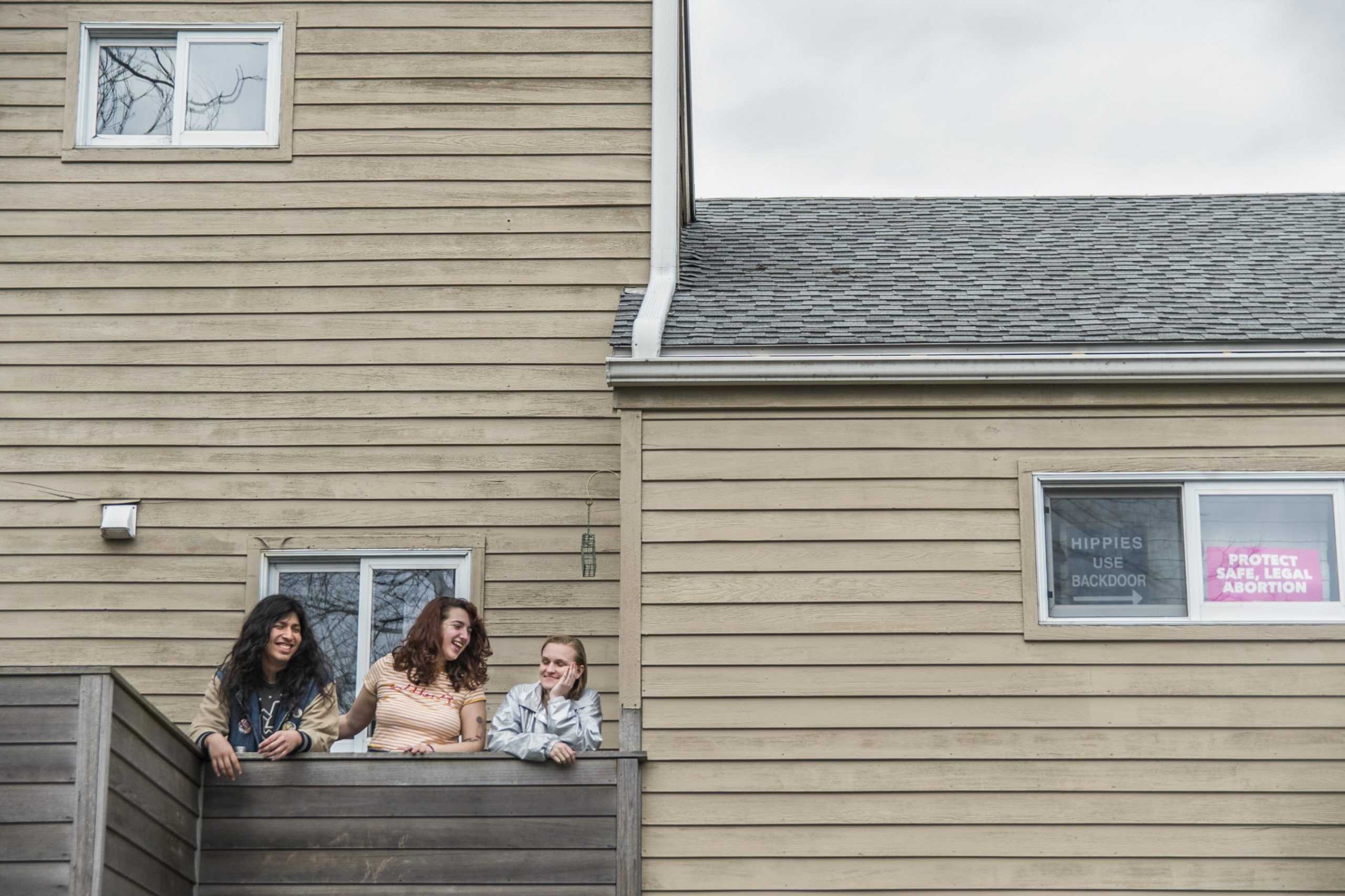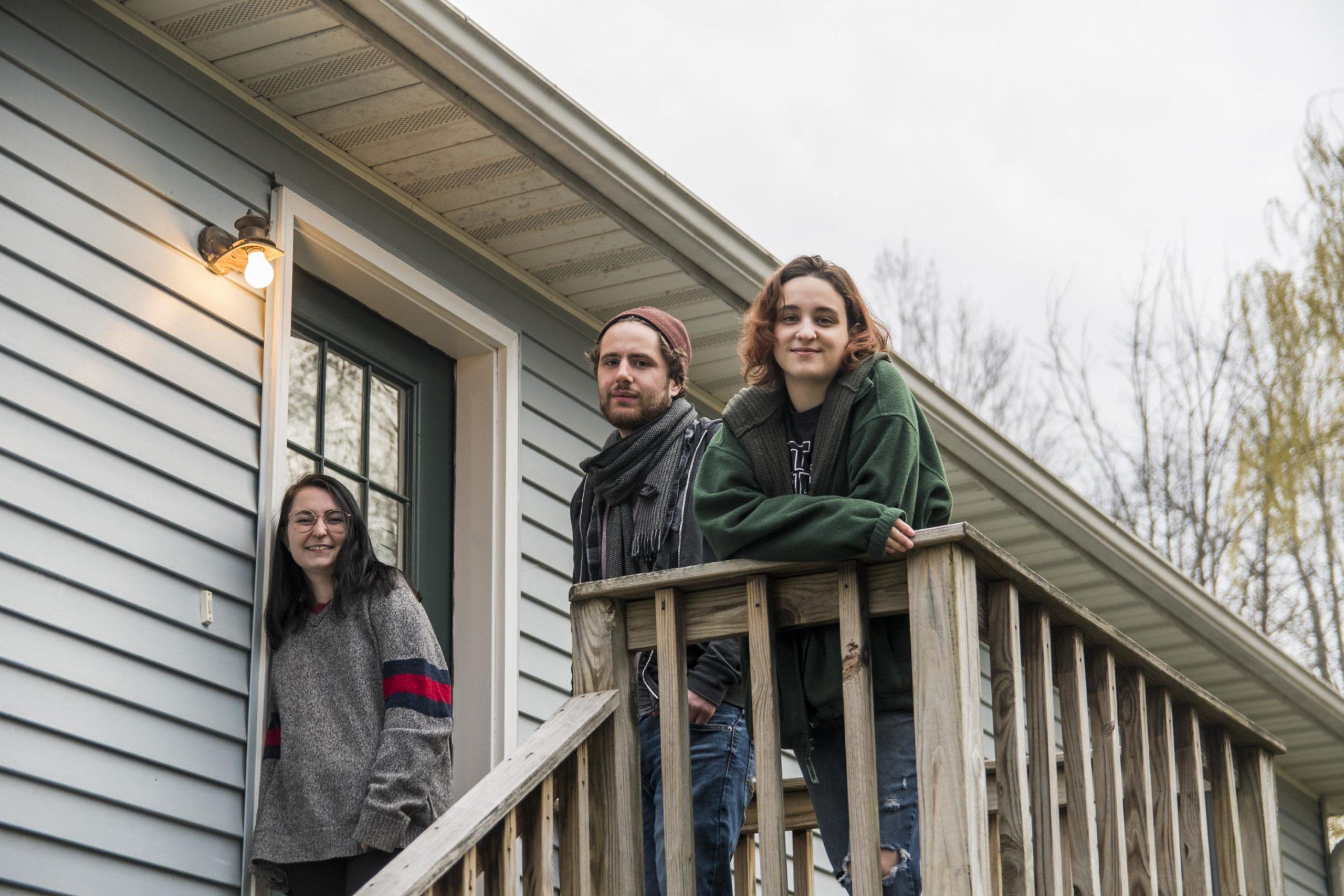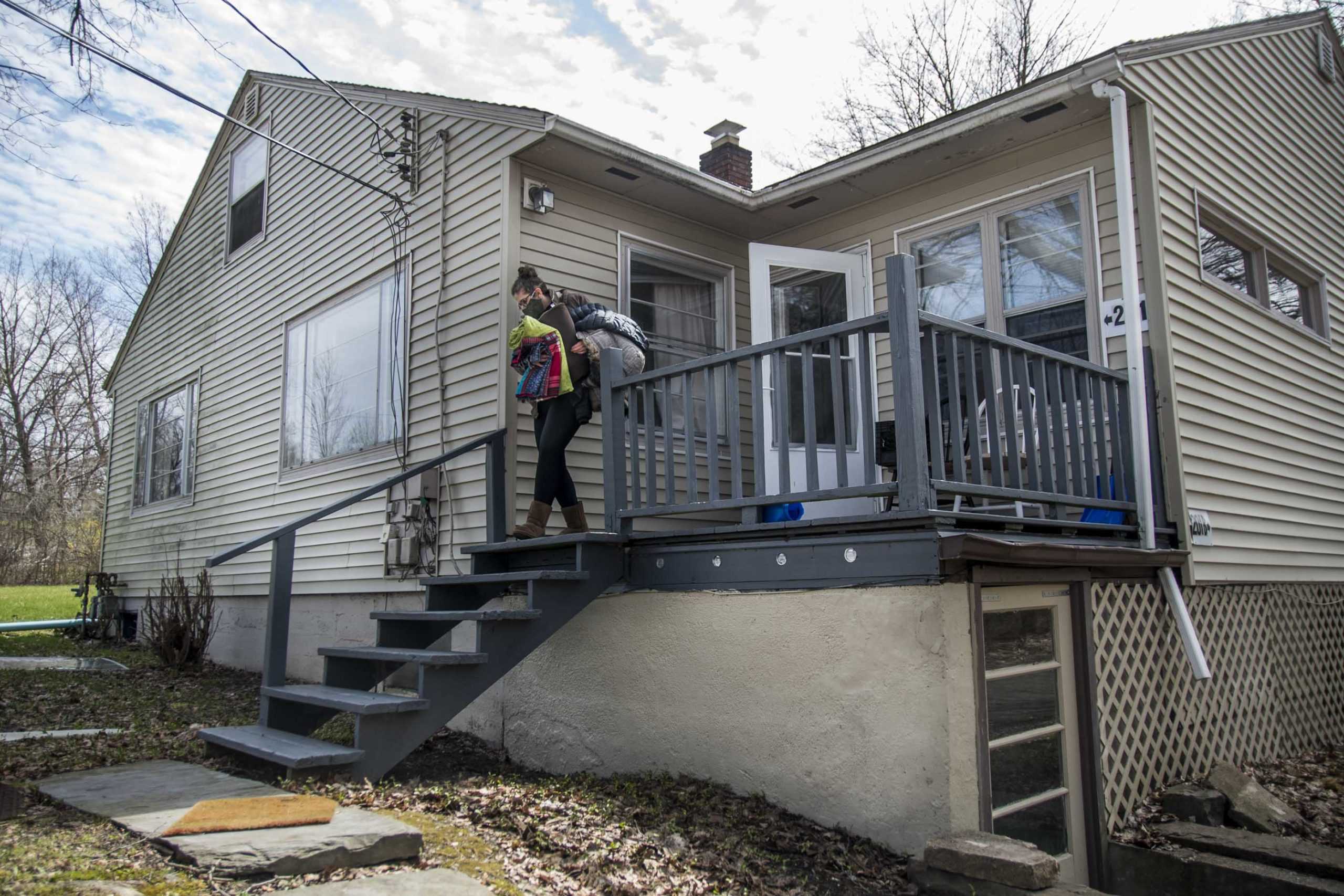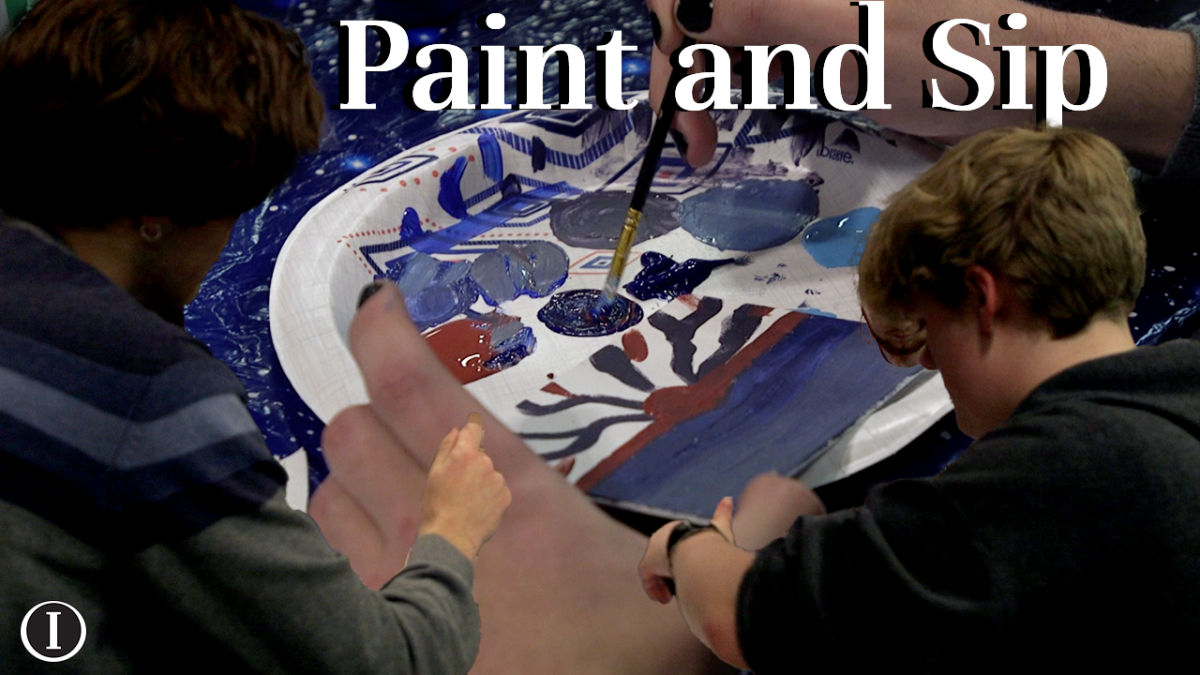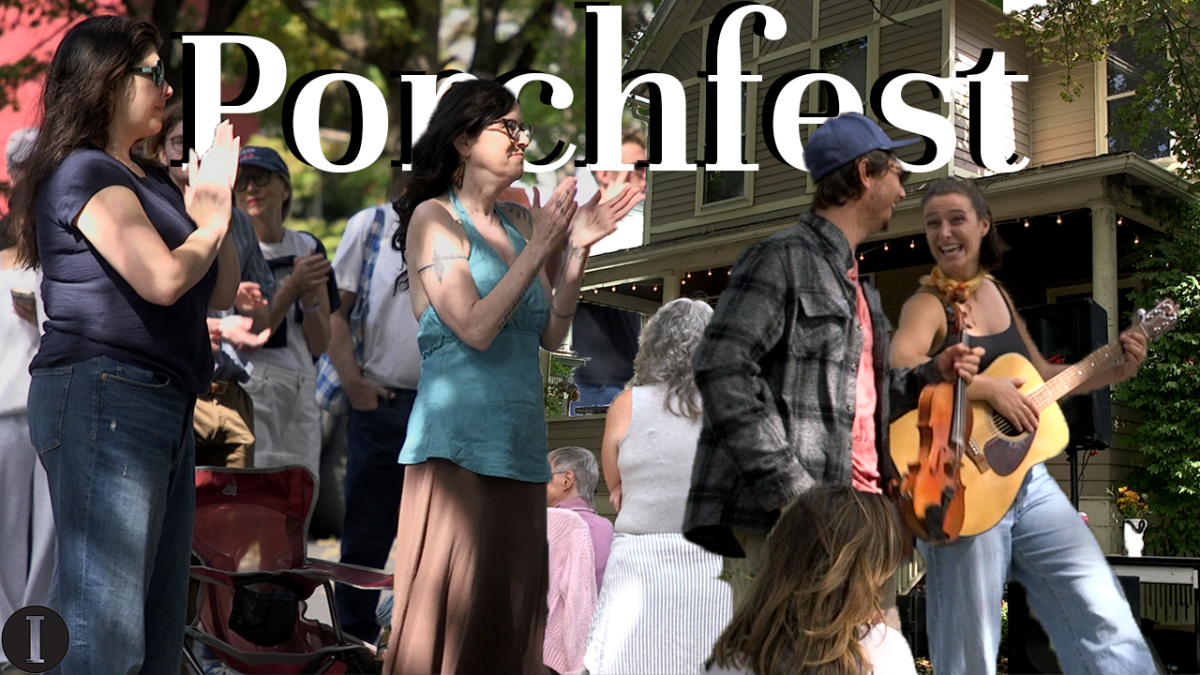Ithaca College students still had a glimmer of hope around spring break. Recess was extended an extra week, and classes were to be held online for two weeks because of the COVID-19 pandemic, but students were expected to be able to return to campus April 5.
However, with just one email, the fears of many students were confirmed. On March 17, President Shirley M. Collado announced that the college would continue remote learning for the remainder of the semester. The global impact of the pandemic was suddenly too close to home, causing a monumental shift in how these college students learn, feel and live.
They were then faced with a choice: to stay or to go?
Even with the remainder of on-campus classes and events canceled and a majority of the campus buildings closed, many students chose to continue living in Ithaca. An estimated 160 students remain in the Ithaca area as of April 9, said Doreen Hettich-Atkins, director of strategic planning and administration in the Division of Student Affairs and Campus Life. Hettich-Atkins said she predicts the actual number of remaining students to be higher.
Many are calling this an unprecedented time, but, for college students, the general sentiment is the same — things are weird.
Hiking the trails. Cooking. Delivering food. Connecting with neighbors. Watching television. These students are finding different ways to pass the time, which there seems to be so much of. But to those who stayed, being in Ithaca is the best place they could be right now.
Kristen Harrison ’20 visited some of the students at their Ithaca homes — from a social distance — in April and May to see how they are spending their time in Ithaca.
Colin Boyd ’20, Melanie Marsh ’20, Sam Unger ’20, Ary Stewart ’20 and Kal Hertafeld ’20
“Our neighbor Linda is the garden master.”
A house previously known among students as “Goo Lagoon,” a popular student concert venue, has shrunk in size. The remaining five of nine roommates have found a new friend in their next-door neighbor Linda, who has inspired them to create a small garden in front of their house. Linda also reads Marsh’s tarot cards from her window.
Kal Hertafeld: We’ve been doing house dinners, so we have a meal chart. Since we all have more time on our hands, we’ve been cooking some really nice meals for each other.
Ary Stewart: I’ve been carving spoons a lot.
Melanie Marsh: I learned how to play the drums, lots of cooking, lots of gardening. … We’re going to grow a victory garden.
KH: Our neighbor Linda is the garden master.
MM: She has an awesome garden, and she’s very kind. She’s been helping us improve our garden, has been letting us use her tools and giving us already started plants that we can put into our ground, like strawberries, lilies and irises.
AS: And she made us pita bread and these really good vegan cupcakes. She gave me flour once so I could make cookies.
KH: Now we gave her some of our pizza. We just formed a closer relationship with her, which was nice because when there are so many things going on I feel like people don’t connect with their neighbors as much because we’re always on the go.
AS: I feel like Ithaca is really showing its true colors. Ithaca has been like this invaluable resource for local, good, reasonably priced food. I think it’s really taking care of itself right now.
MM: I’m seeing a lot of Facebook and social media posts about places where you can get free food. People want to help each other out here, which is really nice.
Matt Mastrangelo ’20
“I felt like this is where I want to be even though there’s nobody here.”
Mastrangelo sees the empty campus firsthand every day from his balcony of the Garden Apartments. He was waiting for when he could safely return to Westchester County, one of the initial hot spots of the pandemic in New York state. His three roommates left, and he was almost certain that no one else remained in his building.
Matt Mastrangelo: The only thing I’ve been doing is sleeping until noon at the earliest. I’m doing any and all of my homework the second it gets assigned and then spending the remainder of my free time watching movies. I’ve watched over 75 movies. I spend a majority of the warm, nice days sitting on this balcony with a beer in my hand, listening to music. I watch the empty [Tompkins Consolidated Area Transit] go by on campus eight or nine times a day. For the most part, I don’t really leave, and I’m kind of OK with it. I think part of the reason I stayed is because I’m a senior, and regardless of nobody being here, regardless of the rest of the semester being stripped away, I deserve to stay if I wanted to. I felt like this is where I want to be even though there’s nobody here.
Connor Duffy ’20 and Brian Johnson ’20
“In quarantine, tomorrow is just today again.”
Both Johnson and Duffy were looking forward to special senior moments when the pandemic began. Johnson had scheduled the shoot of his thesis film, and Duffy was set to attend and win an award at “Just Desserts,” the Ithaca College Television and radio awards celebration. Both noted a considerable lack of motivation in the wake of these lost moments.
Brian Johnson: I decided just to be safe and stick it out here. I also didn’t want to leave Connor alone in the house.
Connor Duffy: Ironic considering the only reason I’m here is to keep you company. I stayed behind because, over spring break, I was one of the stupid people that traveled not knowing that things would be as bad as they were. I couldn’t get the thought out of my head that if I go back, there’s a chance I can give it to my parents. Figured I’d rather give it to Brian than anyone else.
BJ: It’s really hard to find motivation to work on projects. I end up going to bed late at 1 a.m. or 2 a.m. and waking up late at 11 a.m. or noon. My whole sleep and life schedules [are] thrown off, and I feel like the days sort of end up blending together. I don’t feel like I’ve done that much or achieved anything interesting. There’s plenty of people that are doing a lot in quarantine, and they’re using it as a time to better themselves, and I should be doing that. And then I just end up watching a lot of “Community” and going to bed late.
CD: I think one of my favorite quotes that I’ve seen through all this is, “In quarantine, tomorrow is just today again.” Every day kind of feels the same. You want to do your homework, and it takes seven hours to write two pages of work. On the bright side, there are a couple things where I always told myself if I had more time I would do this more that I’ve been doing. I’ve been calling my girlfriend a lot more because I have the time to do that now.
BJ: I think it’s proven to me that there are a lot of friendships that are due to just being near people. Quarantine has helped me realize the really close, true friendships I have. No matter where you are, you still check in on each other, and you’re still connected with those people. It’s been sad to lose some of those day-to-day acquaintances, but I also think it strengthens some of the long-term friendships that I’ve had.
CD: Yeah, no, I definitely do not plan on talking to you after graduation.
Kendall Wellauer ’20, Maggie Nickerson ’20, Sarah Rudge ’20, Caity Schmitz ’20 and Maria Matkoski ’20
“We wouldn’t have had a chance to do all the things we’re doing right now nonstop any other time.”
With a full house, the five have loaded up on activities. All were on different schedules during the school year, so they didn’t see each other much. The group has spent its time painting a mural, making paper cranes, obsessing over “Glee,” serenading houses with a traveling speaker, doing home workouts and delivering homemade doughnuts to friends — just to name a few of the many activities.
Kendall Wellauer: We wouldn’t have had the chance to do all the things we’re doing right now nonstop any other time.
Caity Schmitz: I thought it would be more fun to be here in Ithaca than at home with my parents. I would kill my brother. Definitely by the end of it, but probably two weeks in.
Maggie Nickerson: So much of this stuff I would not have been able to do at home.
Rising senior Liz Bierly and Rebecca Rice ’20
“I’ve been able to be a lot more present in relationships.”
Bierly and Rice stayed in Ithaca for different reasons but continue living together. Bierly stayed to spend time with her boyfriend, and Rice stayed because of complications with moving back and forth from her home state of Texas.
Liz Bierly: I think the pace of life has changed. I’m noticing in April rather than getting ready for finals or being really stressed, I’ve spent a lot more time with Rebecca and Zach [Ives] upstairs. I’ve been able to be a lot more present in relationships. I’ve seen that with a lot of other people. There are a lot more couples or friends walking on the trails. Normally I only see single runners or maybe older people walking together, but I’m seeing college students and younger populations connect with each other.
Jess Competiello ’20
“I get to spend more time enjoying Ithaca.”
As a member of the track team, Competiello spent a good deal of her college career practicing and traveling for meets. She has used her newfound free time to reconnect with Ithaca through volunteering and exploring nature.
Jess Competiello: I try three days a week to go to [Cornell University] to volunteer with Cayuga Medical Center to make medical masks. I’m a sewer’s assistant, so I’ll chop all the masks and wire them and just whatever the people on the actual machines need help with. [Ithaca] is different in the sense of my experience because it was me running around and traveling on the weekends for track. I get to spend more time enjoying Ithaca, which is kind of ironic due to the situation. I brought bikes back, so I bike all around for hours, and I go on hikes. I run. This is the first time I get to go to a gorge every day and do all these big hikes because I just never had the time to before. I felt like we were supposed to be here anyway. I still kind of get some time here and enjoy how beautiful it is here. And going home, I would have felt like I didn’t finish out my senior year.
Abby Chirokas ’19, MS ’20, rising senior Carly Hough and Nicole Marino ’19
“I feel like with the stillness and extra time, I’m definitely more creative.”
After being forced to leave her on-campus apartment, Hough moved into an apartment with Marino and Chirokas. Marino is working as a live-in nanny, and Chirokas is finishing up her thesis, although her fieldwork has been indefinitely postponed.
Carly Hough: It’s definitely a ghost town on campus, so I’m happy to be down here in Fall Creek. It’s going to be warm soon, and then I’ll be outside and not doing school. It feels really safe here.
Abby Chirokas: In the context of this neighborhood, it feels somewhat normal sometimes just minus the face masks. But it’s kind of strange when you actually get into more public spaces, just walking through The Commons and seeing all the businesses closed.
CH: Unfortunately, I still have class, but, besides that, I picked up the guitar again. A lot of painting, knitting, working on photo projects, working on my Etsy store, just trying to find creative things to do so I don’t feel too down or watch too much TV.
Nicole Marino: Right now, I’m working full–time as a live-in nanny. I’m also running my business on top of that. Since I used a machine in our local maker space to make all my products and that local maker space is now closed, I decided to buy a $6,000 laser cutter to put in my bedroom and continue running my business even through the pandemic.
AC: I’m also trying to engage in some creative pursuits. I’m teaching a weekly yoga class on Facebook Live. I started making earrings. I’m working on some projects for myself, like a poetry collection.
CH: We’re a very crafty house.
AC: I feel like with the stillness and extra time, I’m definitely more creative.
Kiersten Rhodes ’20, Cornell University and Sarah Horbacewicz ’20
“I was desperate for any sense of routine.”
Horbacewicz and Rhodes are missing their third roommate, but they filled the void by welcoming Starsky, an 18-month guide dog in training. In between their scheduled Sad Abs Social (SABS) Zoom sessions and episodes of “Love Island,” the two are spending more time cooking.
“I learned how to poach an egg the other day,” Horbacewicz said. “That was huge.”
Kiersten Rhodes: Being home where I don’t have my own dedicated workspace would be really tough for my mental health and productivity because I rely so much on having a good environment in which to work. I think that provides a sense of stability for me as I do classwork and apply for jobs. The other is to maintain a sense that this is still college by still living in my college house and hanging out with at least some of my college friends and spending time in Ithaca, which is enough of a separation from my normal hometown that it still feels different.
Sarah Horbacewicz: It feels more normal to continue living where I was supposed to be living at this point during college. But at the beginning of quarantine, I was desperate for any sense of routine, so I made a “Camp Coddington” schedule, which includes watching “Love Island” every night.
KR: At the beginning of quarantine, we watched a full season, which is 36 episodes.
SH: I Zoom my boyfriend. Applying to jobs is a big chunk of time. I do a lot of crafts and painting and some reading. Now, I’m watching the dog, and training him takes a lot of time. I do a really fun thing called SABS, which started as a daily ab routine over Zoom but has now turned into a multiperson routine. SABS stands for Sad Abs Social. You can be sad, you can do abs or you can be social. Either way, it’s a Zoom call, and maybe you’ll get a workout in.
Rising seniors Teresa Gelsomini, Ronee Goldman and Rafael López
“I’m introducing myself to my co-workers, but I don’t know what their smile looks like.”
This apartment filled with acting majors has expanded during quarantine. Three roommates turned to four when they welcomed a friend to stay with them whose musical tour was canceled. Goldman works on campus at the information desk, and Gelsomini started a job at the new GreenStar Food Cooperative location on Cascadilla Street.
Teresa Gelsomini: It’s weird to meet all of my co-workers. I’m introducing myself to them when they’re wearing their mask. I don’t even really know the full identity of my co-workers because we would chat and we laugh and smile, but I don’t know what their smile looks like. That makes me really sad, but it’s also kind of nice because I’m making more eye contact with people.
Ronee Goldman: I work with one other person every shift, but they’re more than 12 feet away at a different desk. We usually just chat the whole shift in the past. And now I honestly pretend I understand what people are saying most of the time. I can’t hear them.
Rafael López: I know that a lot of people are kind of feeling, us included, we are suddenly expected to have all this time to do extra things when sometimes we feel even busier than we were before…
TG: … Or more unmotivated than before. But also, who needs to be on it right now? No one. There’s no pressure.
RG: I just feel like we’re inside all day. I’m so sedentary. I want to be more active because before you at least walk to classes, and you have to move around. Now, we sit on one spot on our couch for all of Wednesday. The three of us have a lot of classes together, and we just put the Zoom on together and sit on our couch.
Isabel Brooke ’20 and Kaitlyn Sevilla ’20, DPT ’22
“It’s shining a light for me on Ithaca as a larger community that I maybe wouldn’t have paid attention to if this wasn’t happening.”
Before quarantine, four people lived in Sevilla and Brooke’s house. Now, it’s just the two of them. Sevilla is a caregiver for a woman with multiple sclerosis, and Brooke recently started working as a delivery driver for Ithaca To Go.
Isabel Brooke: It’s not what anyone expected. I’m still delivering stuff, and a lot of the restaurants are being really flexible and adaptable and making it work with just delivery or takeout. Trying to find jobs is weird and complex now in ways that it didn’t used to be.
Kaitlyn Sevilla: It’s weird because we vacillate between sadness but then also gratefulness. I feel like those have been my two main emotions. I also think it’s important to recognize a lot of people are doing really great work and coming together. I think this community always does a good job of pulling together and having each other’s backs. The amount of people who are promoting small businesses right now and trying to make masks for people, or I see a lot of people that have a little food pantry outside of their homes. It’s also shining a light for me on Ithaca as a larger community that I maybe wouldn’t have paid attention to if this wasn’t happening.
Cornell University rising junior Mar Buquez, Suzannah Van Gelder ’20 and Jacoba Taylor ’20
“There’s a lot of space to feel sorry for things that I’ve lost, and there’s a lot of space to feel thankful that I have what I have.”
Both Taylor and Van Gelder noted a change in the area, but Van Gelder did not feel as though the pandemic changed their birthday plans, which was on the day they were photographed.
Jacoba Taylor: I have this experience where if I don’t know what I want to be doing and nothing sounds appealing, I call it feeling like “snarbage.” I really miss a lot of people that I know this would be the last chance that I would have to spend quality time with for a long time. Honestly, I just miss going to class. I just miss having a reason to get up in the morning that I can go someplace and do something. It sucks to be a senior. I was looking forward to a lot of great things, and they were ripped out from my hands without even the chance to say goodbye because we all ended on spring break.
Suzannah Van Gelder: I don’t know if it’s more a personal sense of dread or if it is something that permeates the community, but I feel like when I go out, it does feel like there’s this palpable sense of something is happening and something is bad, which isn’t always the case inside when you’re just kind of ignoring everything. When you go out and everyone’s in masks and they’re keeping their eyes down and you’re moving away from each other, it’s stressful. We all know that we’re living in a pandemic, but it feels like we’re not talking about it.
JT: The people are very much the same. I go on a walk every day, and so do a lot of people, and that feels like a very Ithaca thing to do. We’re all still very wary of each other, and that’s an odd feeling. I feel like Ithaca is so community focused that if you start alienating yourselves from each other, it really is an impact.
SVG: There’s a lot of space to feel sorry for things that I’ve lost, and there’s a lot of space to feel thankful that I have what I have.
Sophie Delaney ’20, Pierce Vincenty ’20 and Gianna Mercier ’20
“Don’t stop quarantine just because the stuff you want to do is available.”
Delaney, Mercier and Vincenty had just returned to Ithaca from the Department of Theatre Arts senior trip to New York when quarantine began. They cannot decide if the new environment feels more like a summer Ithaca or winter break in Ithaca, but the quarantine has brought them closer to the Ithaca community. Delaney also started driving for Uber Eats.
Sophie Delaney: Overall, I think people are a lot nicer. Every restaurant I go to someone will be like, “Do you want a drink?” “Can I give you a little bag of chips? Thank you so much,” and it’s really cute. I got a bottle of hand sanitizer from a guy at Panda Tea Lounge. Everyone’s just trying to help each other out.
Pierce Vincenty: It’s all locals, which is nice because there’s no one screaming on this street or throwing big parties. My reason for not leaving is I’m paying for rent. I don’t exactly have the hundreds of dollars to pour down the drain. Support local businesses because there’s a lot of people that are really hurting. They’re the people that are actually supporting their workers. They’re the ones that actually are the driving force in our local economy.
Gianna Mercier: Don’t stop quarantine just because the stuff you want to do is available. The governments are attempting to open up to save the economy. Don’t fall victim into feeding the economy when it’s actively harmful to other people.
SD: Yeah, you can help the economy by ordering online and then tipping your delivery driver!
Rebecca van der Meulen ’20
“I stayed in quarantine so I knew that I would be safe to go home.”
Since the start of spring break, van der Meulen had lived alone in her apartment. She self-quarantined so she could go home to see her older parents, who are at a higher risk of contracting the virus. She packed her things and returned home the day she was photographed.
Rebecca van der Meulen: I stayed in quarantine so I knew that I would be safe to go home. For the foreseeable future, I’ll be at home with my parents and brother, and I’ll be helping out doing the things that they can’t do because of the pandemic. I’ll be helping out with groceries, picking up food, anything that has to be done outside of our property. I should be hanging out with all my senior friends right now. And we should all be partying and getting drunk and hugging people. It’s really weird to have to take online classes while being walking distance from school. It’s making me think more about the things we take for granted, like human contact and friends and senior year stuff, where you’re like, “Wait, I cared about this a lot more than I thought I did.”



